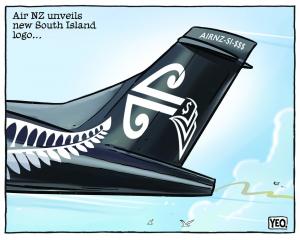Much has been written about the impressive Dunedin Study during its 45 years of operation - with most attention coming from overseas.
The research developed from the University of Otago's Dunedin Multidisciplinary Health and Development Study is being used worldwide. The research is described as providing the most detailed data on human development ever amassed and director Richie Poulton says it is arguably the pre-eminent study in the world. It is based on researching the lives of about 1000 children born in Dunedin in 1972 and 1973.
The study recently was awarded the nation's top science prize - The Prime Minister's Science Prize. With the award goes $500,000 which was presented to Prof Poulton and his fellow researchers from the research unit.
The prize was described as a watershed moment for the study and recognised the generosity and commitment of the study members themselves. The prizemoney could not have come at a better time because several new assessments for age 45 are being provided, in a 20-22-month-long process set to begin early next month.
The importance of the study cannot be underestimated. It attracts millions of dollars every year from overseas and has influenced health and social policies internationally. It aims to provide answers to questions on subjects as diverse as child health, injury prevention and links between drug abuse and adult psychosis.
Its helps policy-makers and clinicians make evidence-based decisions and create targeted social services. Members of the study are brought to Dunedin at regular intervals to participate in a day of interviews, physical tests, dental examinations, blood tests, computer questionnaires and surveys.
Results from the study helped an American man escape the death penalty after Bradley Waldroup was found to have murdered his estranged wife. Waldroup was saved by his lawyers and psychological experts who testified in his defence. But his salvation was reportedly started in 2002 when scientists published a study of 442 men.
The study found a gene which explained why Waldroup was unlikely to have committed premeditated murder. Instead of death, Waldroup ended up receiving a 32-year prison sentence.
The study has the kind of information behavioural scientists crave. Researchers have followed the subjects through their childhood and now into their mid-lives. And the study will continue to generate the kind of detail researchers can apply practically around the world.
The next phase of the assessment will involve several new components, including neuroimaging, hearing, vision, kidney function, musculoskeletal function, as well as everything done in the past - everything that is age appropriate where there is wear and tear on the study members' bodies.
Science and research is an important part of the University of Otago's role in Dunedin. It previously won the supreme prize at the Prime Minister's science awards in 2014 and with Niwa scientists in 2011. Having the global attention such awards generate provides a valuable tool in the marketing of the university and Dunedin as a place to come and learn with the absolute best.
While there will always be negative student behavioural incidents at the university, they are overshadowed by the work carried out by academic and research staff, and students.
Strangely, the study appears to be more well known internationally than in its own backyard. Auckland documentary-maker Mark McNeill, of Razor Films, received about $750,000 from New Zealand On Air to film a four-part documentary based on the study which will be aired on dozens of networks around the globe, including SBS in Australia and BBC Asia.
He hoped the documentary would make the study more well known in New Zealand. Mr McNeill went around the world filming and constantly people would say to him ''Look, I suppose everyone in New Zealand knows about the Dunedin Study,'' and he had to say, ''No, they don't''.
Hopefully, the television documentary which screened in New Zealand last year and the latest award will lift the profile of the study domestically and even higher internationally.












